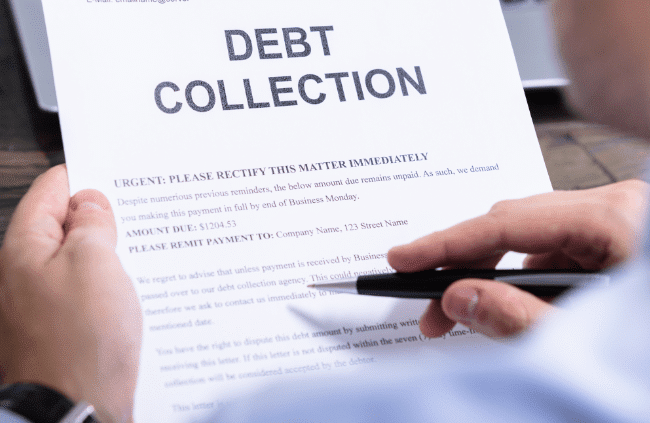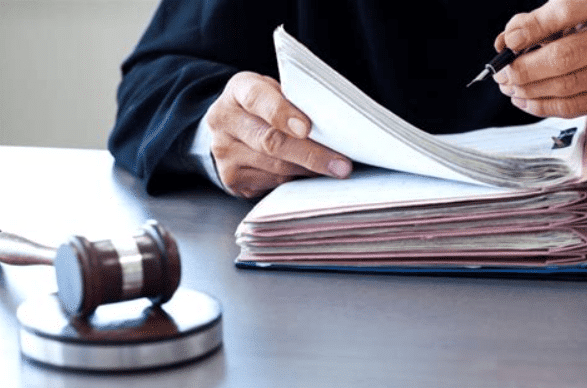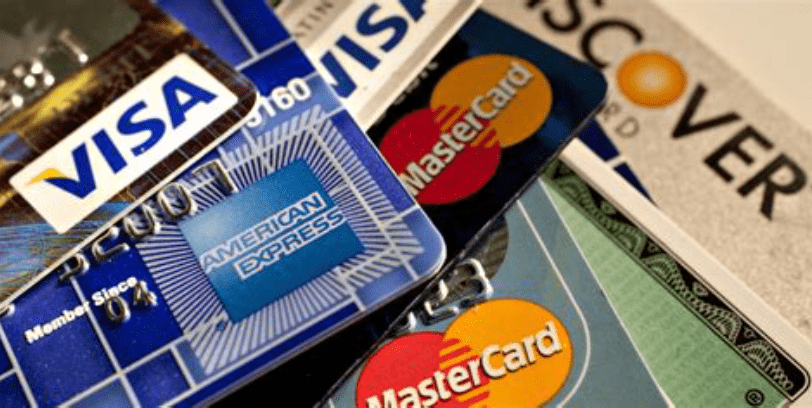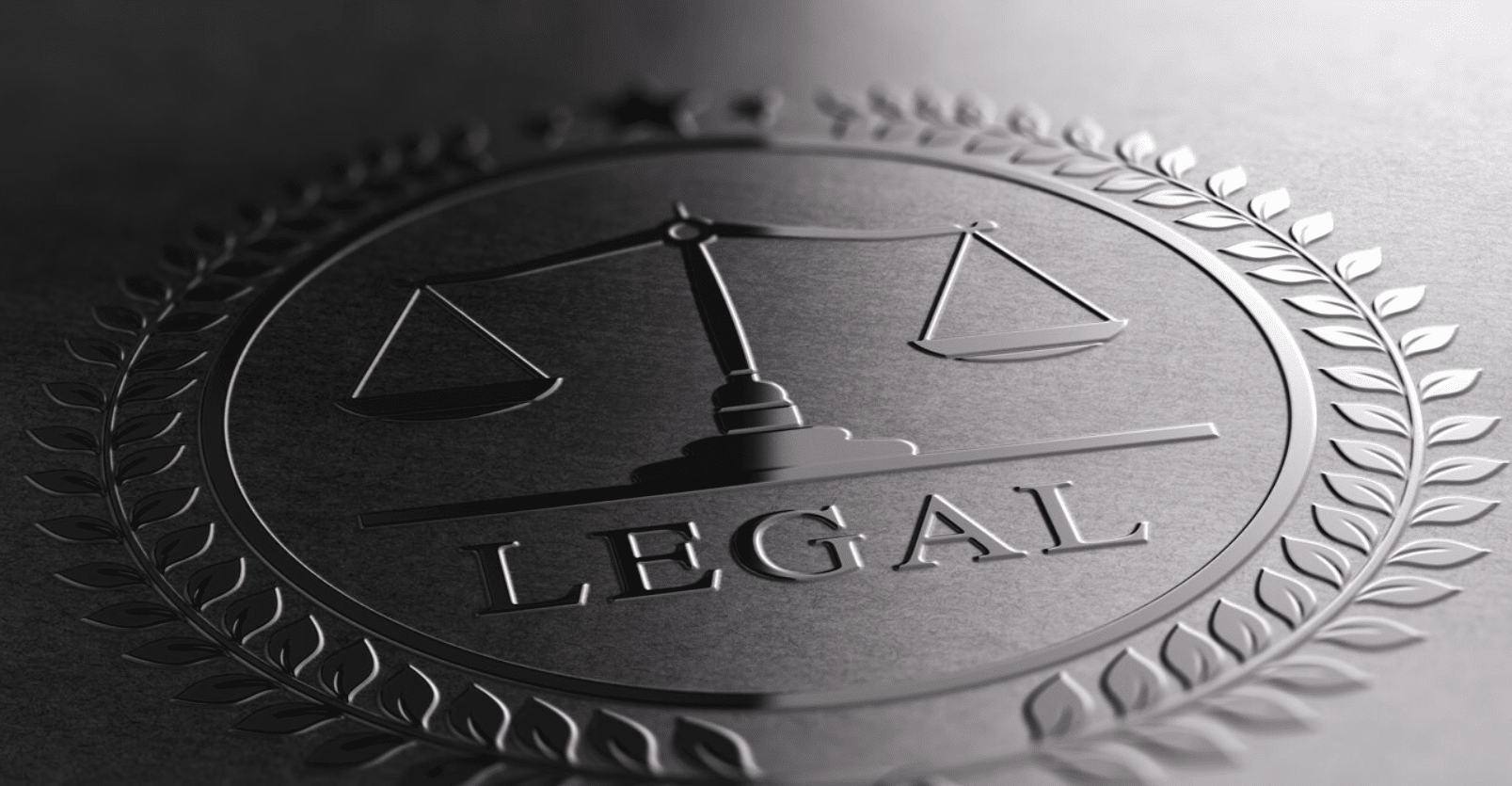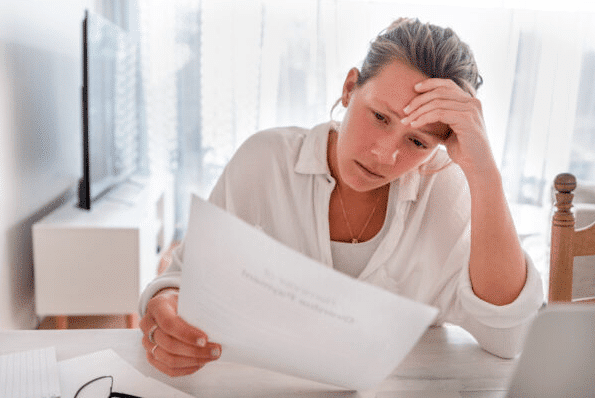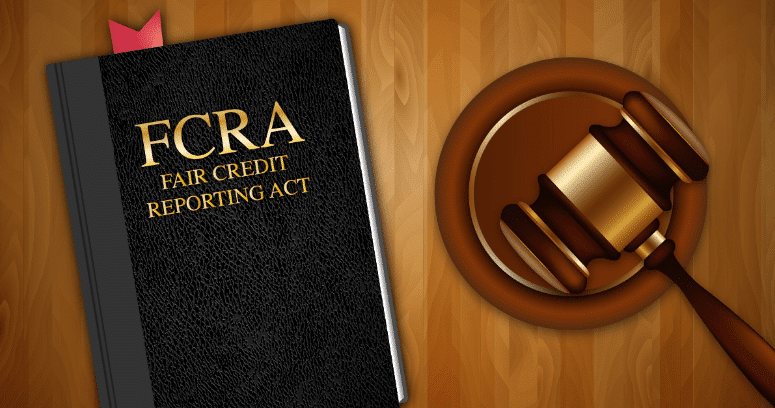Please adhere to the following procedural guidelines to draft a Debt Validation Letter: first, assert your rights; second, formally request validation of the debt; and third, ensure the letter is dispatched within 30 days of your initial engagement with the collector. Should the debt collector fail to substantiate their claims with adequate documentation, they are obligated to halt further communications until such validation is provided. For more information, please visit ZumaZip.com.
As household debt in the U.S. rises to $17.29 trillion in 2024, with increases across mortgage, credit card, auto loan, and student loan balances, it’s essential for consumers to manage and challenge potentially erroneous claims from debt collectors.
As individuals contend with debt collectors, they frequently encounter situations where they are pursued for debts they do not owe. To combat this, astute consumers employ a strategy of sending a Debt Validation Letter. This article will outline the process of creating and dispatching such a letter, elucidating how this proactive measure can effectively alleviate the burden of debt collection efforts.
What is a Debt Validation Letter?
A debt validation letter serves as a formal written request directed to a debt collector, seeking substantiation of the debt they claim you owe. This correspondence provides an opportunity to assert your rights before debt collectors. It is imperative to respond promptly to any communication from a debt collector by sending a Debt Validation Letter within 30 days of the initial contact.
You have a right to request debt validation
A Debt Validation Letter constitutes a form of legal demand letter aimed at asserting the rights delineated in the Fair Debt Collection Practices Act.
According to § 809(a) of the FDCPA, a debt collector must provide the following five points within five days of attempting to collect on a debt:
- The amount of the debt.
- The name of the creditor.
- The collector will assume the debt is valid unless the consumer sends them a Debt Validation Letter within 30 days.
- If you send the collector a Debt Validation Letter they will need to mail you validation of the debt.
- If you send them a Debt Validation Letter they will need to mail you the name and address of the original creditor.
So, the debt collector must provide these five points within five days of contacting you about the debt. Then, you have 30 days to send them a Debt Validation Letter if you dispute any aspect of the debt, as outlined in § 809(b) of the FDCPA, which states:
“If the consumer notifies the debt collector in writing within the thirty-day period . . . that the debt, or any portion thereof, is disputed . . . the debt collector shall cease collection of the debt . . . until the debt collector obtains verification of the debt . . . and a copy of such verification . . . is mailed to the consumer by the debt collector.”
In the event that a collector fails to furnish the specified five points within five days of the initial contact, or persists in contacting you without validating the debt upon request, they are in breach of the Fair Debt Collection Practices Act (FDCPA), rendering them liable to legal action for damages amounting to $1,000 or more. Although sending the letter beyond the initial 30-day timeframe remains an option, its efficacy in asserting your rights may be diminished.
ZumaZip’s Debt Validation Letter makes it easy to respond to collectors.
Follows these steps to make a Debt Validation Letter
Initiating the process of sending a Debt Validation Letter can be characterized by its simplicity and clarity. To commence drafting the letter, include pertinent contact details for both yourself and the debt collector. Clearly outline the method through which you were initially contacted, and furnish relevant information facilitating the collector’s identification of the debt in question.
Subsequently, adhere to the following three steps to form the core components of your Debt Validation Letter:
- Assert your rights: In this section, clearly state your rights as a consumer under the Fair Debt Collection Practices Act (FDCPA). Emphasize that you are exercising your right to request validation of the debt and that the collector must cease collection efforts until validation is provided.
- Request validation: Clearly and explicitly request that the debt collector provide validation of the debt they claim you owe. Specify that this validation should include the amount of the debt, the name of the original creditor, and any relevant documentation supporting their claim.
- Send the letter: Once you have drafted the letter, ensure that it is mailed to the debt collector within the 30-day timeframe from the date of their initial contact with you. Use certified mail with return receipt requested to have proof of delivery.
Let’s take a minute to explain each step in detail.
Step 1: Assert your rights
Since a Debt Validation Letter is a type of legal demand letter, yours should cite some law to make it sound more legit. Quoting the FDCPA will show the debt collector that you mean business.
Here are some other specific legal rights you you can assert in your Debt Validation Letter:
- Don’t contact me except to validate the debt.
- Report to the credit bureaus that the debt is disputed.
- If you validate the debt, cease contacting me for any reason other than to tell me you’re suing me.
It’s easy to make these points with ZumaZip’s Debt Validation Letter.
You can close by threatening legal action — legal action for the debt collector violating the FDCPA or for harassing you. Threatening legal action is nearly always a good move.
Step 2: Request validation
Next, make the collector validate your debt. You should ask the collector to provide the following information:
- Proof you owe the debt
- The exact amount of the debt
- The age of the debt
- The debt collector’s documented ownership of debt account
- The debt collector’s license, or right to collect on the debt in your state
- A calculation of whether the statute of limitations has expired for collecting the debt
- The last action taken on the account (i.e. your last payment on the account)
These are just some of the demands for validation you should include. The bulk of your letter will be requests for validation. For example, ZumaZip’s Debt Validation Letter is three pages long, and mostly contains requests for validation of specific aspects of the debt in question.
Step 3: Send the letter
To dispatch the letter, you will require access to a functional printer and familiarity with postal services. Utilizing USPS Priority Mail is often deemed optimal, given its provision of a tracking number, expedited delivery, and a predictable cost of $7.50.
Alternatively, USPS Certified Mail with a return receipt is an option, albeit cumbersome. Despite its perceived advantages, such as enhanced verification, the preparation and delivery process can be protracted. Return receipts, while offered as an additional service, may not substantially augment the letter’s legal standing in court compared to a tracking number indicating delivery. Moreover, signature requests can potentially impede delivery, rendering Priority Mail the preferred choice.
Typically, the recipient of the letter should be the individual directly engaged in debt collection efforts, which may include an attorney or collections firm acting on behalf of the creditor or bank.
Use ZumaZip to make your Debt Validation Letter
ZumaZip offers a comprehensive solution to streamline the process of responding to collection letters. Our Debt Validation Letter is widely recognized as an effective means of addressing such communications, often resulting in debt collectors discontinuing their pursuit. By simply providing responses to a series of online inquiries, our software generates a tailored Debt Validation Letter personalized to your specific circumstances. Let ZumaZip alleviate the burden of navigating debt collection procedures with our user-friendly platform.
Sending a Debt Validation Letter can stop collection calls
To understand why a Debt Validation Letter is so important, it’s helpful to understand how the debt collection process works.
Banks and lenders sell unpaid debts to debt collectors for 4% of the value of the debt on average. Debt collectors then attempt to collect the debts from consumers. If they are unsuccessful, they may file a lawsuit to collect the debt. Frequently, the sale from the bank to the debt collector is poorly documented. So, the debt collector may be unable to verify they own the debt and unable to verify who owes the debt.
If you send them a Debt Validation Letter, it makes it more difficult and more expensive for them to collect the debt. They need to keep their costs low to be profitable. This letter raises their costs, making it more likely they will fold.
In some few cases, it may be a good strategic move to lie low and not send a Debt Validation Letter. This may be a good option if the statute of limitations is nearing expiration. That said, we generally believe this strategy is dubious.
Another benefit of the Debt Validation Letter is that it can make the calls stop. It can do this in two ways:
- Under FDCPA §809(b), if the letter disputes the debt, “collection activities and communications” must cease.
- Under FDCPA §805(c), the consumer can request the collector “cease further communication.” In this case, the collector can only contact you to tell you they’re going to sue you. In this way, you can use the Debt Validation Letter to raise the stakes, forcing the collector to sue you or get lost. If they sue you, you can use ZumaZip’s lawsuit response document to win your case.
Example: Diana receives a letter from a debt collection agency claiming she owes more than $5,000 in old credit card debt. She doesn’t remember owing any money on a card, so she decides to send a Debt Validation Letter to the collectors. The collection agency purchased the debt from the original creditor, US Bank. Fortunately for Diana, the collectors cannot find the documentation that proves Diana owed the debt to the original creditor before they purchased it. Because of this, the debt collection agency must cease collection efforts, and Diana is off the hook.
Use this Debt Validation Letter template
ZumaZip’s Debt Validation Letter template allows you customize a letter to your case and debt circumstances. Our Debt Validation Letter has proven to stop debt collectors in their tracks, and the best part about it is it only takes a few minutes to draft online.
Just respond to a few questions regarding your debt, and ZumaZip’s software drafts the letter for you. It’s really that simple.
If you are on a tight budget, you can use this template, courtesy of ZumaZip.com:
[Your Name]
[Your Address]
[City, State, ZIP Code]
[Date]
[Debt Collector’s Name]
[Debt Collector’s Address]
[City, State, ZIP Code]
Re: [Account Reference Number, if available
Dear [Debt Collector’s Name],
I am writing in response to your [letter/call] dated [date of the collector’s communication, if available], regarding the alleged debt. Under the Fair Debt Collection Practices Act, Section 809(b), I am requesting validation of this debt.
Please provide me with the following information:
- The amount of the debt;
- The name of the original creditor;
- Documentation proving that I have a legal obligation to pay this debt;
- Verification that the debt is within the statute of limitations.
I would like to remind you that until this debt is validated, all collection activities must cease. This request is not an acknowledgment of the debt, but a statement of my rights to dispute the debt until it is properly validated.
Thank you for your attention to this matter. I expect your response within the legally mandated timeframe.
Sincerely,
[Your Name]
FAQs about debt validation
Here are some frequently asked questions about debt validation and how the Debt Validation Letter can benefit regular consumers, like you.
Should I use a Debt Validation Letter?
Yes. Nearly every time someone is contacted by a debt collector about a debt, they should respond with a Debt Validation Letter. The letter forces the collector to treat you with respect and to get serious about the matter.
49 percent of all complaints filed with the FTC about debt collectors state the debt collector attempted to collect a debt that wasn’t owed. And 53 percent of people who are contacted by a debt collector say they’re being contacted about a debt they don’t owe or a debt of the wrong amount.
So, lots of people are being hounded by debt collectors for money they don’t owe. The Debt Validation Letter is your guardian.
If you don’t dispute the debt then “the debt will be assumed valid by the debt collector,” according to the FDCPA. That’s not good. By not filing a Debt Validation Letter, you are sacrificing your rights.
Why should I send a Debt Validation Letter?
Here are reasons why a Debt Validation Letter is beneficial in nearly all encounters with a collector:.
- If you don’t owe the debt, then the collector is likely to fold because they can’t provide validation of it.
- If you only owe some of the debt, then the collector will be forced to prove the amount you actually owe. This can remove thousands of fraudulent dollars added on top of the actual debt.
- If you owe the full debt, then the collector still may not be able to show proper documentation that you owe it, or they might not be able to show documentation that they own the debt and have the right to collect on it.
- If the debt collector is able to validate the debt, then you will still benefit by having additional information about the debt. The letter will put you in a better place to negotiate a settlement. And you can request the collector cease contacting you.
ZumaZip’s Debt Validation Letter helps you take advantage of your situation.
What if the debt collector doesn’t validate the debt?
If a debt collector doesn’t validate the debt after receiving your Debt Validation Letter, then they have violated the FDCPA. If the debt collector didn’t include those five points, mentioned above, in a correspondence within five days of first contacting you, then they violated the FDCPA. You can sue them for $1,000 for each violation. You can also report them to your state’s attorney general, the FTC, and the Consumer Financial Protection Bureau (CFPB).
What if the debt collector validates the debt?
Sometimes a debt collector will successfully validate the debt. Even if they do this, you don’t have to pay off the debt entirely. You have a few options.
- Send a cease and desist letter, requesting they stop contacting you except for by lawsuit.
- Make a settlement offer to satisfy the debt by paying only a percentage of it.
- Do nothing. Wait for the statute of limitations to expire.
- Pay the full amount of the debt.
Generally, the first two options are best.
Can I use a Debt Validation Letter to respond to medical bills?
Yes, a Debt Validation Letter is a great way to verify a medical debt.
It’s not uncommon to receive a medical bill for a balance that you already paid off or for a debt that is so old, you don’t even recognize it. Medical institutions are required by law to prove the debt is valid in order to report it to the credit bureaus or take you to court over it.
Additionally, scammers frequently send out mass notifications claiming all the recipients owe money for medical services. Sending a Debt Validation Letter will stop these fraudsters in their tracks.
What is the difference between a Debt Validation Letter vs. debt verification letter vs. debt dispute letter?
Basically, these three letters are really the same thing. Sometimes a Debt Validation Letter is called a debt verification letter or a debt dispute letter. The FDCPA doesn’t specify these names, and it uses the words “validate” and “verify” interchangeably. At ZumaZip, we call the letter sent by the consumer to the debt collector the Debt Validation Letter because that’s what most regular people call it.
Technically speaking, the debt verification letter (also known as the debt dispute letter) is the document sent by the consumer to the debt collector. And the letter sent by the debt collector to the consumer to show proof of the debt is the Debt Validation Letter. But like we said, these terms are used interchangeably.
In reality, the correspondence between a debt collector and a consumer is messy. There may be multiple letters, interspersed with phone calls and emails.
Example: Jeremy gets a phone call from a debt collection agency about an old credit card debt with American Express. He’s skeptical about the amount they claim he owes. Jeremy sends a Debt Validation Letter (also known as a debt verification letter or debt dispute letter) to the collection agency within 30 days of their first phone call. The collection agency must respond with a Debt Validation Letter that outlines details of the debt or cease collection efforts with Jeremy.
How does a Debt Validation Letter work?
Sending a Debt Validation Letter to a debt collector forces them to validate your debt before they can continue collection efforts.
Here’s consider an example of how a Debt Validation Letter works.
Example: Janet received a phone call from Eilish Collections, LLC. Janet’s iPhone identified the number as “Scam Likely” but she answered anyway. Eilish tells Janet, that she owes Eilish $3,000 for a credit card debt with American Express. Janet hangs up. 7 days later, Janet receives a letter documenting the amount and the creditor of the debt; it notifies Janet of her rights under the FDCPA. Ariana doesn’t want to pay the debt, so three days later, she mails Eilish a Debt Validation Letter from ZumaZip. Eilish sends a letter stating they made a mistake and are unable to validate the debt.
In this example, Eilish violated the FDCPA by not providing information about the debt within five days. Janet did the right thing by responding with the Debt Validation Letter. And in the end, Janet got off the hook.
What should I do after mailing the Debt Validation Letter?
Here are two important steps to follow after sending a Debt Validation Letter.
- Check your credit report with the credit bureaus to make sure the debt collector reported the debt as disputed.
- Keep good records of your correspondence with the collector. If it’s not documented, it didn’t happen. Taking pictures with your phone of any correspondence is a good place to start.
What if I missed the deadline to request debt validation?
If you don’t dispute the debt then “the debt will be assumed valid by the debt collector,” according to the FDCPA. That’s not good. By not filing a Debt Validation Letter, you are sacrificing your rights.
It’s like a pesky ex-boyfriend who thinks if he texts you “I love you” and you don’t respond, that means you love him to. And then he keeps texting you. Forever.
The FDCPA states the consumer must notify the collector “within thirty days.” It doesn’t say what happens if the letter is sent after the 30 days. As far as we know, the letter can still have some sway, but it won’t be as powerful.
The FDCPA also states “the failure of a consumer to dispute the validity of a debt” doesn’t constitute “an admission of liability” for any future lawsuits. So, if you don’t send a Debt Validation Letter, you can still win a later lawsuit, and in that lawsuit, it is still up to the collector to prove you owe the debt.
Can a debt collector contact me after I request debt validation?
After you send a Debt Validation Letter, the debt collector can only contact you for one of the following reasons:
- To notify you that they are no longer going to attempt to collect the debt.
- To notify you that they have the right to “invoke specified remedies”, or in other words, sue you.
- To notify you that they plan to move forward with a debt collection lawsuit.
This is outlined in the Fair Debt Collections Practices Act, 15 USC 1692g §805(c), which states:
(c) Ceasing communication
If a consumer notifies a debt collector in writing that the consumer refuses to pay a debt or that the consumer wishes the debt collector to cease further communication with the consumer, the debt collector shall not communicate further with the consumer with respect to such debt, except —
(1) to advise the consumer that the debt collector’s further efforts are being terminated;
(2) to notify the consumer that the debt collector or creditor may invoke specified remedies which are ordinarily invoked by such debt collector or creditor; or
(3) where applicable, to notify the consumer that the debt collector or creditor intends to invoke a specified remedy.
If such notice from the consumer is made by mail, notification shall be complete upon receipt.”
ZumaZip.com asserts the right sections of the FDCPA for you.
Do Debt Validation Letters really work?
Yes, they do. When a debt collector receives a Debt Validation Letter, they are legally required to provide validation of the debt. Debt Validation Letter’s work best when they include a cease and desist clause that forces a lawsuit. This increases the cost of collection and makes it more likely the collector will drop the case.
What is a debt verification letter?
Sometimes a Debt Validation Letter is called a debt verification letter or a debt dispute letter. And the letter sent by the debt collector to the consumer to show proof of the debt can be called a Debt Validation Letter. The FDCPA doesn’t specify these names, and it uses the words “validate” and “verify” interchangeably. At ZumaZip, we call the letter sent by the consumer to the debt collector the Debt Validation Letter because that’s its most common name.
What if a collection agency never contacted me?
Even if a collection agency never contacted you, a debt can still end up on your credit report or you still might be sued for the debt. Sometimes people don’t hear about the debt until they are sued for it. If you’re sued for a debt, you can use ZumaZip to respond to the lawsuit. If you have a debt on your credit report, you can dispute it with the credit bureaus.
What if you receive a letter from a collection agency?
If you receive a letter from a collection agency, you should respond with a Debt Validation Letter, requesting they show proof the debt is valid. You need to do this within 30 days.
ZumaZip can help you make a Debt Validation Letter in just 3 minutes.
What is ZumaZip?
ZumaZip is a convenient solution designed to streamline your response to a debt collection lawsuit. Here’s a breakdown of what you can expect when you use ZumaZip:
Firstly, you’ll access our user-friendly web application, which guides you through the process step by step. You’ll be prompted to answer a series of questions related to your specific situation. Once you’ve completed the questionnaire, you have the option to either print out the finalized forms and mail them to the appropriate courts yourself, or you can opt to utilize ZumaZip’s services to file them on your behalf. Additionally, if you choose this option, an attorney will review your document for added peace of mind.
If you’re seeking guidance on how to effectively respond to a debt collection lawsuit, ZumaZip can provide the assistance you need. Feel free to explore our FAQs for more information on what ZumaZip has to offer.
What if I haven’t been sued yet?
If you’ve only received a collections notice, but not a lawsuit, the best way to respond is with a Debt Validation Letter. When a debt collector contacts you in any way, whether it’s by phone or mail, you can respond by formally requesting a debt validation with a Debt Validation Letter . This letter notifies the collector that you dispute the debt and forces them to provide proof you owe the debt. They can’t call you or continue collecting until they provide validation of the debt. This flowchart shows how you can use a Debt Validation Letter to win.
Get started with a Debt Validation Letter here.
How to Answer a Summons for debt collection in all 50 states
Here’s a list of guides on how to respond to a debt collection lawsuit in each state:
- Alabama
- Alaska
- Arizona
- Arkansas
- California
- Colorado
- Connecticut
- Delaware
- Florida
- Georgia
- Hawaii
- Idaho
- Illinois
- Indiana
- Iowa
- Kansas
- Kentucky
- Louisiana
- Maine
- Maryland
- Massachusetts
- Michigan
- Minnesota
- Mississippi
- Missouri
- Montana
- Nebraska
- Nevada
- New Hampshire
- New Jersey
- New Mexico
- New York
- North Carolina
- North Dakota
- Ohio
- Oklahoma
- Oregon
- Pennsylvania
- Rhode Island
- South Carolina
- South Dakota
- Tennessee
- Texas
- Utah
- Vermont; Vermont (Small Claims court)
- Virginia
- Washington
- West Virginia
- Wisconsin
- Wyoming
Guides on how to beat every debt collector
Hey there! Facing off against a debt collector can feel like a daunting challenge, but fear not! We’re here to help you navigate through it all with our handy guides designed to assist you in beating every debt collector you encounter. Whether you’re facing a new lawsuit or dealing with a persistent collector, we’ve got your back. Stay positive, stay informed, and let’s tackle this together!
- Absolute Resolutions Investments LLC
- Accredited Collection Services
- Alliance One
- Amcol Clmbia
- American Recovery Service
- Asset Acceptance LLC
- Asset Recovery Solutions
- Associated Credit Services
- Autovest LLC
- Cach LLC
- Cavalry SPV I LLC
- Cerastes LLC
- Colinfobur
- Covington Credit
- Crown Asset Management
- CTC Debt Collector
- Cypress Financial Recoveries
- Delanor Kemper & Associates
- Eagle Loan of Ohio
- Educap
- Estate Information Services
- FIA Card Services
- Forster & Garbus
- Freshview Solutions
- Fulton Friedman & Gullace LLP
- Harvest Credit Management
- Howard Lee Schiff
- Hudson & Keyse LLC
- Integras Capital Recovery LLC
- Javitch Block
- Jefferson Capital Systems LLC
- LVNV Funding
- Mannbracken
- Mariner Finance
- Medicredit
- Michael J Adams PC
- Michael J Scott
- Midland Funding LLC
- Mullooly, Jeffrey, Rooney & Flynn
- Mountain Land Collections
- MRS Associates
- National Collegiate Trust
- Nationstar Foreclosure
- Northstar Capital Acquisition
- NCEP LLC
- NRC Collection Agency
- OneMain Financial
- Palisades Collection LLC
- Pallida LLC
- Paragon Revenue Group
- Pinnacle Collections Agency
- PMAB LLC
- Portfolio Recovery Associates
- Provest Law
- PYOD LLC
- Reunion Student Loan Finance Corporation
- Revenue Group
- Regents and Associates
- RSIEH
- Salander Enterprises LLC
- Second Round Sub LLC
- Security Credit Services
- Sherman Financial Group
- Suttell and Hammer
- T-Mobile
- Transworld Systems
- Tulsa Teachers Credit Union
- UCB Collection
- Velo Law Office
- Velocity Investments
- Waypoint Resource Group
- Weinberg and Associates
- Wolpoff & Abramson
Settle your medical debt
Having a health challenge is stressful, but dealing medical debt on top of it is overwhelming. Here are some resources on how to manage medical debt.
- Am I Responsible for My Spouse’s Medical Debt?
- Do I Need a Lawyer for Medical Bills?
- Do I Need a Lawyer to Fight Medical Bill Debt?
- Does Bankruptcy Clear Medical Debt?
- How Much Do Collection Agencies Pay for Medical Debt?
- How to Find Medical Debt Forgiveness Programs
- Is There a Statute of Limitations on Medical Bills?
- Medical Debt Statute of Limitations by State
- Summoned to Court for Medical Bills — What Do I Do?
- Summoned to Court for Medical Bills? What to Do Next
Stop calls from Debt Collectors
Do you keep getting calls from an unknown number, only to realize that it’s a debt collector on the other line? If you’ve been called by any of the following numbers, chances are you have collectors coming after you, and we’ll tell you how to stop them.
- 800-390-7584
- 800-289-8004
- 800-955-6600
- 877-366-0169
- 877-591-0747
- 800-278-2420
- 800-604-0064
- 800-846-6406
- 877-317-0948
- 888-899-4332
- 888-912-7925
- 202-367-9070
- 502-267-7522
Other wage garnishment resources
- Bank Account Garnishment and Liens in Texas
- Can I Stop Wage Garnishment?
- Can My Wife’s Bank Account Be Garnished for My Debt?
- Can Payday Loans Garnish Your Wages?
- Can pensions be garnished?
- Can Private Disability Payments Be Garnished?
- Can Social Security Disability Be Garnished?
- Can They Garnish Your Wages for Credit Card Debt?
- Can You Stop a Garnishment Once It Starts?
- Guide to Garnishment Limits by State
- How Can I Stop Wage Garnishments Immediately?
- How Long Before a Creditor Can Garnish Wages?
- How Long Does It Take to Get Garnished Wages Back?
- How to Fight a Wage Garnishment
- How to Prevent Wage Garnishment
- How to Stop a Garnishment
- How to Stop Social Security Wage Garnishment
- How to Stop Wage Garnishment — Everything You Need to Know
- New York Garnishment Laws – Overview
- Ohio Garnishment Laws — What They Say
- Wage Garnishment Lawyer
- What Is Wage Garnishment?
Guides on Arbitration
If the thought of going to court stresses you out, you’re not alone. Many Americans who are sued for credit card debt utilize a Motion to Compel Arbitration to push their case out of court and into arbitration.
Below are some resources on how to use an arbitration clause to your advantage and win a debt lawsuit.
- How Arbitration Works
- How to Find an Arbitration Clause in Your Credit Agreement
- How to Make a Motion to Compel Arbitration
- How to Make a Motion to Compel Arbitration in Florida
- How to Make a Motion to Compel Arbitration Without an Attorney
- How Credit Card Arbitration Works
- Motion to Compel Arbitration in California
- Sample Motion to Compel Arbitration
Federal Debt Collection Laws Can Protect You
Knowing your rights makes it easier to stand up for your rights. Below, we’ve compiled all our articles on federal debt collection laws that protect you from unfair practices.
- 15 USC 1692 Explained
- Does the Fair Credit Reporting Act Work in Florida?
- FDCPA Violations List
- How to File an FDCPA Complaint Against Your Debt Collector (Ultimate Guide)
- How to Make a Fair Debt Collection Practices Act Demand Letter
- How to Submit a Transunion Dispute
- How to Submit an Equifax Dispute
- How to Submit an Experian Dispute
- What Debt Collectors Cannot Do — FDCPA Explained
- What Does Account Information Disputed by Consumer Meets FCRA Requirements Mean?
- What does “meets FCRA requirements” mean?
- What does FCRA stand for?
- What is the Consumer Credit Protection Act
Resolve Your Debt with Your Creditor
Some creditors, banks, and lenders have an internal collections department. If they come after you for a debt, ZumaZip can still help you respond and resolve the debt. Here’s a list of guides on how to resolve debt with different creditors.
- American Express; American Express – Debt Collection
- Bank of America
- Barclay
- Best Buy Credit Card
- Capital One
- Chase
- Credit One Bank
- Old Navy Credit Card
- PayPal Synchrony Card
- Regional Finance
- Retailers National Bank
- Reunion Student Loan Finance Corporation
- SYNCB/PPEXTR
- Synchrony Bank
- Synchrony Walmart Card
- Target National Bank
- Webbank
- Wells Fargo
- Can I Pay My Original Creditor Instead of a Debt Collection Agency?
- Can I Settle a Debt with the Original Creditor?
Check the Status of Your Court Case
Don’t have time to go to your local courthouse to check the status of your case? We’ve created a guide on how to check the status of your case in every state, complete with online search tools and court directories.
- Alabama Court Case Search—Find Your Lawsuit
- Alaska Court Case Search — Find Your Lawsuit
- Arizona Court Case Search – Find Your Lawsuit
- Arkansas Court Case Search — Find Your Lawsuit
- California Court Case Search- Find Your Lawsuit
- Colorado Court Case Search — Find Your Lawsuit
- Connecticut Case Lookup — Find Your Court Case
- Delaware Court Case Search — Find Your Lawsuit
- Florida Court Case Search — Find Your Lawsuit
- Georgia Court Case Search — Find Your Lawsuit
- Hawaii Court Case Search — Find Your Lawsuit
- Idaho Court Case Search – Find Your Lawsuit
- Illinois Court Case Search — Find Your Lawsuit
- Indiana Court Case Search — Find Your Lawsuit
- Iowa Court Case Search — Find Your Lawsuit
- Kansas Court Case Search — Find Your Lawsuit
- Kentucky Court Case Search — Find Your Lawsuit
- Louisiana Court Case Search — Find Your Lawsuit
- Maine Court Case Search — Find Your Lawsuit
- Maryland Court Case Search — Find Your Lawsuit
- Massachusetts Court Case Search — Find Your Lawsuit
- Michigan Court Case Search — Find Your Lawsuit
- Minnesota Court Case Search — Find Your Lawsuit
- Mississippi Court Case Search — Find Your Lawsuit
- Missouri Court Case Search — Find Your Lawsuit
- Montana Court Case Search — Find Your Lawsuit
- Nebraska Court Case Search — Find Your Lawsuit
- Nevada Court Case Search — Find Your Lawsuit
- New Hampshire Court Case Search — Find Your Lawsuit
- New Jersey Court Case Search—Find Your Lawsuit
- New Mexico Court Case Search – Find Your Lawsuit
- New York Case Search — Find Your Lawsuit
- North Carolina Court Case Search — Find Your Lawsuit
- North Dakota Court Case Search — Find Your Lawsuit
- Ohio Court Case Search — Find Your Lawsuit
- Oklahoma Court Case Search — Find Your Lawsuit
- Oregon Court Case Search — Find Your Lawsuit
- Pennsylvania Court Case Search — Find Your Lawsuit
- Rhode Island Court Case Search — Find Your Lawsuit
- South Carolina Court Case Search — Find Your Lawsuit
- South Dakota Court Case Search — Find Your Lawsuit
- Tennessee Court Case Search — Find Your Lawsuit
- Texas Court Case Search — Find Your Lawsuit
- Utah Court Case Search — Find Your Lawsuit
- Vermont Court Case Search — Find Your Lawsuit
- Virginia Court Case Search — Find Your Lawsuit
- Washington Court Case Search — Find Your Lawsuit
- West Virginia Court Case Search — Find Your Lawsuit
- Wisconsin Court Case Search — Find Your Lawsuit
- Wyoming Court Case Search — Find Your Lawsuit























